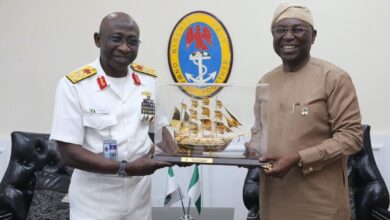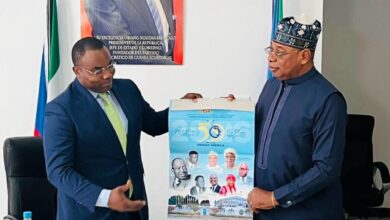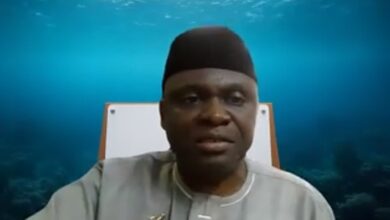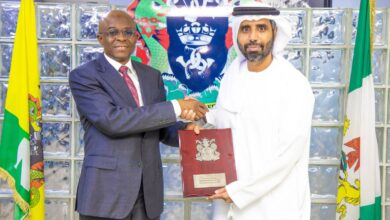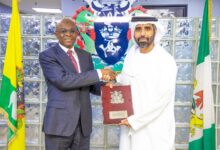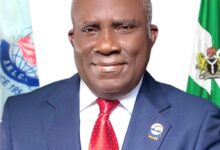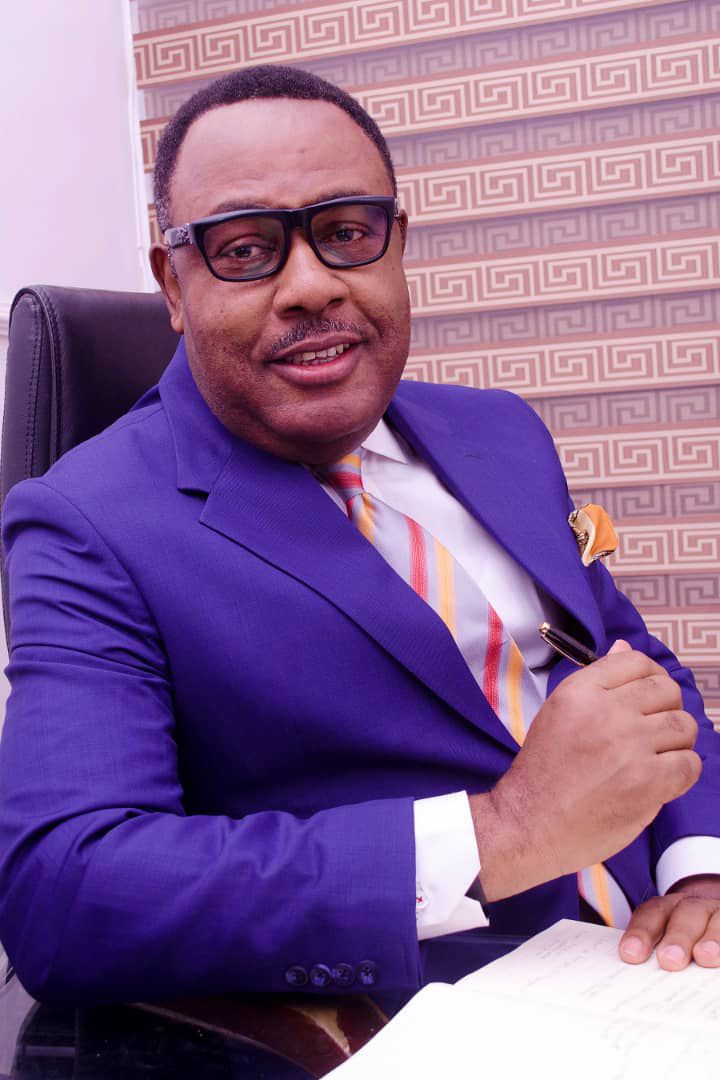
Tony Iju Nwabunike, Pioneer Chairman of the Council for the Regulation of Freight Forwarding in Nigeria (CRFFN)states in this interview that Nigeria’s recent move towards strengthened relationship with France is ill timed and could cost the country future benefits from other West African countries seeking emancipation in a renewed wave of weaning from their former colonial master.
Excerpt
As one in the diaspora with eyes focused on business in Nigeria , how do you think Nigeria fared in 2024?
Look beyond my opinion. I will suggest we go by the figures in the public domain, first
As recent as December 2024, the Headline inflation rate was 34.80% from 34.60% in November 2024. Month-on-Month, the Headline inflation rate in December 2024 saw a 2.44% rise. Food Inflation Rate was 39.84% .
Much as I will admit that inflation is a global trend, Nigeria has its peculiarities ranging from a weaker naira exchanging for an average of ₦1600 to one 1 dollar. The naira as a currency is largely unstable and this affects planning for business.
It also affects public sector budgeting like hinging your 2025 national budget on ₦1400 to a dollar when before passage by National Assembly and presidential assent, it could hit ₦1700
You know, the country is largely import dependent and the high exchange rate coupled with increase in the cost of logistics including port charges are transferred to the final consumers.
Nothing imported is expected to come cheap. This affects any locally produced item whose raw materials are sourced abroad because such manufacturers must need forex to trade before production.
The government is yet to fully fix rail to achieve cheaper movement of commercial goods and large number of passengers in the country. As you may be aware, cost of transportation has direct impact on the level of inflation in the economy.
The wait on market forces to bring down the price of petrol is going to be a long one . Recent reduction of PMS price from about ₦1100 per liter to ₦990 is not significant enough to force down cost of movement.
On food self sufficiency, we haven’t seen much impact of the announced waiver by Mr President. Despite the huge amounts spent to grow rice and the showcase of fake rice pyramids by former President Buhari and then CBN Governor Emefiele, the price of rice has remained at roof top.
What is your take on the AfCFTA and how best do you think implementation could impact faster?
African leaders are not ready. It’s all motion without movement. I must say things are happening too slowly. AfCFTA was proposed in Ethiopia in 2012,the agreement was signed in Rwanda in 2018 and it started operation around May 2019.
Looking at these timelines, one would expect issues about traveling within the continent and uniform currency to be sorted long before now.
We have been discussing AfCFTA for years without African leaders taking conscious steps to break down visa barriers especially for business travelers within the continent. Are we saying the money countries make from visa fees is bigger than what they stand to gain from greater intra African trade?
For instance, if I discuss trade from Lagos in Nigeria with other business people in Mombasa or Nairobi in Kenya, I can’t take the next flight to see them and perfect the deal without first spending days and weeks to get a visa.
By May 2025,AfCFTA would be six years in operation, the SG is running on a second term but we can’t travel freely within the continent.
I must specially commend former President Nana Akufo-Addo of Ghana for granting visa free travel to all holders of African passport coming into Ghana.
This Ghana model, though coming late,is what all African governments should emulate and discuss as a major issue at the level of the African Union.
Ghanaian government decision is also instructive because Accra is where AfCFTA Secretariat is situated. I will now ask, what is ECOWAS, presently led by President Bola Tinubu of Nigeria waiting for?
Specifically speaking on Nigeria, what is the best approach you would suggest?
Nigeria must be more strategic in her long term best interest in building relationship with any of the world power countries. The recent visit of President Tinubu to France and the instance of the French President with the big celebrations made from it doesn’t send friendly signal to some of our neighbour ECOWAS countries.
It is happening at the same time six ECOWAS countries of Mali, Burkina Faso, Niger, Chad, Senegal, and Ivory Coast are cutting ties with France. This itself is capable of straining trade relationships with these countries on Nigeria’s part.
Today, Togo is considering to join the Alliance of Sahel States (ASS) which is a confederation between Mali, Niger, and Burkina Faso. The ASS originated as a mutual defense pact created on 16 September 2023 following the 2023 Nigerien crisis, in which the West African political bloc ECOWAS threatened to use military force to restore civilian rule after a coup in Niger earlier that year. These moves are votes of no confidence on ECOWAS
Nigeria should be seen bringing all countries in the bloc together. We can’t afford to lose our brothers because we found a rich friend in France
I suspect the recent wrong accusations from Niger against Nigeria was merely on suspicion but in reality, the mindset could be that of “A friend to my enemy, is my enemy”
I have said it before that Nigeria needs Niger Republic and other West African countries more than she needs France.
Nigeria’s foreign policy should be tailored towards building an Africa that is political strong, economically self reliant and united in solving their common problems of poverty, hunger and insecurity.
While our sister West African countries are keeping away from France’s grip which they have endured for over five decades post independence, Nigeria is gravitating towards France. This will make regional unity and cohesion difficult.
Whatever immediate benefit Nigeria looks forward to gaining from France can not be equated with what the country stands to lose from a strained relationship with sister African countries.
Our relationship with France is contributing to already existing tension causing confusion and distrust in the midst of our West African neighbouring countries
Our relationship with BRICS is the smartest diplomatic move that could change our economy for the better if we sustain it. We need to break away from the strong influence of the US dollar on our economy
The strength and energy we are spending romancing France that has become a controversial colonial master could be channeled to BRICS and other world partner organisations.
We are the single largest market in Africa with an influential population of about 223m people only followed by a distant second Ethiopia; third, Egypt and fourth Democratic Republic of Congo with 126m, 112m and 102m persons respectively.
We are growing our export but not at a commensurate measure with our high import volume whereas Nigeria has what it takes to become the China of Africa in terms of production.
Today, some African countries are taking the bull by the horns, working hard to break new grounds in political,economic and social development.
Being part of the single largest market in the world where we ought to have influential participation is an opportunity lying on our laps.
We must as a country be ready to take the opportunity offered to us before Nigerians become backbenchers in a system we ought to be frontrunners.
The AfCFTA has 54 signatories, making it the largest free trade area in terms of the number of member states, second only to the World Trade Organization. It is also the largest in population and size serving over 1.3 billion people across the African continent.
Presently, Nigeria is not having the best of political relationship with Niger, which has the largest land space measuring 1.267million square kilometers bigger than Nigeria’s 923.7million square kilometers.
The Niger space is the largest in West Africa and very strategic in the economic interdependence of African countries.
Our improved relationship with with France looks good but I am bold to say that as a growing economy, we need Niger, more than we need France. I say this as a freight forwarder with international exposure and as one who visited Niger as part of a delegation to convince them to patronise Nigeria’s first inland dry port in Kaduna.
Our proximity to Mali and Algeria through Niger is a great advantage to explore in reaching our North African brothers as over ten thousand trucks carrying trade goods to and from Nigeria travel along this route annually, all things being equal.
The Trans-Saharan Gas Pipeline is a project that would connect Nigeria’s Warri gas fields to Europe via Algeria which must pass through Niger Republic.
It was planned to run from Nigeria’s Warri region through Niger to Algeria’s and would connect to existing pipelines that supply Europe from Algeria’s Mediterranean coast.
The pipeline would be 4,128 kilometers (2,565 miles) long, with 1,037 kilometers (644 miles) in Nigeria, 841 kilometers (523 miles) in Niger, and 2,310 kilometers (1,440 miles) in Algeria.
The pipeline would deliver up to 30 billion cubic meters of gas per year and estimated to cost $13 billion. The pipeline is expected to begin operations by 2030.
A joint Committee of the National Assembly recently suggested ₦12tr target for Nigeria Customs Service in 2025. What’s your take on this?
It doesn’t make sense. Firstly let me start by saying the lawmakers went beyond their brief. Setting target for federal government revenue generating agencies is not their job
If the Nigeria Customs pursue collection of ₦12tr in 2025,even if they achieve it, the economy will suffer for it. Check the volume of trade through which the made ₦6.1tr. Check the impact on the general populace.
If import duties account for over 70 percent of revenue collected by the NCS annually, do you think more import activities will happen when you suffocate importers, exporters and manufacturers of excise items items while trying to double the ₦6tr you collected under difficult situation?
I will advise the customs management to educate the National Assembly more on how these things work and their short, medium and long term implications on the social and economic well being of Nigerians
What is your economic outlook for Nigeria in 2025?
I like to be very practical and pragmatic about this. First government must avoid wasteful spending. No matter the strategies you have and implement, if politicians and collaborating civil servants device ways to channel public monies into private pockets using phony projects,huge revenue generated through taxation would end up misappropriated or stolen.
I can’t stop saying, we urgently need to fix security. This is the plank on which major economic activities rest. No business can thrive optimally where you have insecurity.
Even the poverty we talk about is propeled by insecurity because productivity is regarded where farmers, miners, fishers and traders are not fully assured of safety.
Our back and forth on power generation should be addressed. We have become the country with the largest number of collapses of its national grid. In 2024, Nigeria’s national grid collapsed 12 times which is negatively record breaking meaning an average of once in a month
Our total installed power generation capacity is around 16,384 MW but we have been struggling to attain and sustain 4,000 mega watts which is very poor for 230 million people in a country seeking to industrialise and raise the value of her currency
Aside crude oil, what else do we have to sell to the world? As a country, we need to urgently revive export of things we have comparative advantage for. I suggest government declares a national emergency on export looking at the direction of commodities like cotton, cocoa shea butter, hibiscus, and other items.
Whoever advised us to float the naira, be it the World Bank or International Monetary Fund (IMF) without putting these strategies in place didn’t plan we’ll for us because the journey to recovery would be made slower as the cart was put before the horse, whereas it should be the other way around






